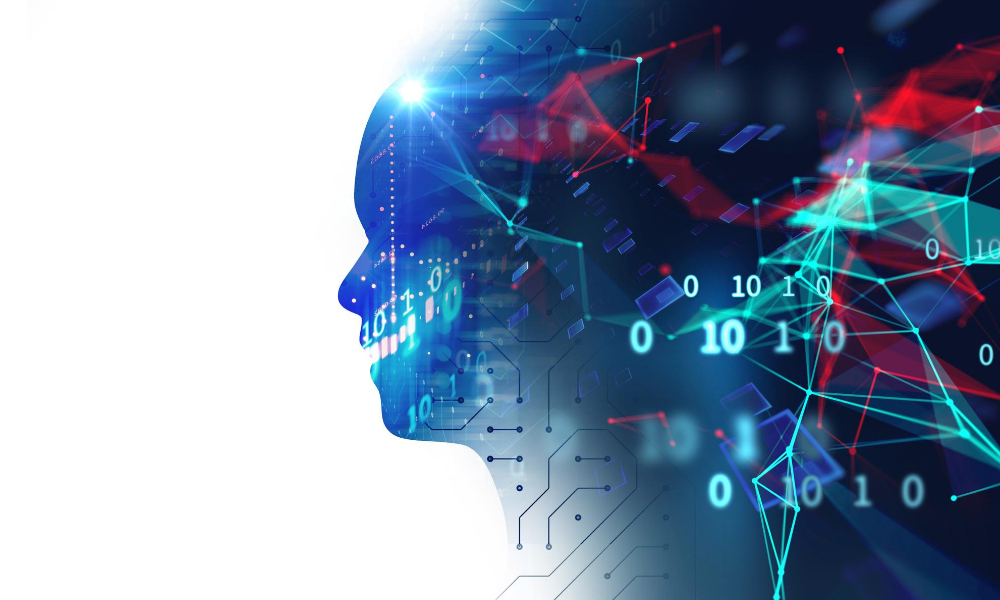With the rise of AI in healthcare, there’s been a lot of talk about how it will affect the job market. But what does that mean for people who work in healthcare?
The truth is, we don’t know for sure yet. But what’s clear is that artificial intelligence will change how we approach training healthcare workers. With AI, we can provide more targeted training methods than ever before. This means that instead of teaching new employees everything they need to know before they start working on their own, you can teach them just enough to get started and then monitor their progress as they go along.
This trend has been growing in popularity over the past few years, with many companies adopting it as part of their onboarding process. It may seem like a small change at first glance—after all, you’re still teaching your employees everything they need to know before they start working on their own—but it actually makes a huge difference when it comes time for them to hit the ground running.
As the world’s population continues to grow and more people are required to maintain and provide health care services, the training of healthcare workers becomes increasingly important. The use of artificial intelligence (AI) for healthcare training will ensure that a greater number of healthcare workers are able to take on this challenging role in the future. confidence in AI will also play an important role in ensuring that healthcare workers are able to carry out their tasks effectively.
How Artificial Intelligence is changing the way healthcare is delivered
AI is being increasingly used to train healthcare workers. By using AI, healthcare providers can save time and money by training professionals in a variety of areas such as pathology, radiology, and surgery. In some cases, AI-assisted training has even been used to develop medical skills that are not currently possible with human beings.
Artificial intelligence is being used to create new drugs, detect cancer and other diseases earlier, and even predict if you will get sick. It’s also helping doctors better understand your health history so they can provide you with more personalized care.
You may have already used an app that uses artificial intelligence to help manage your health, like [app name]. These types of apps use a combination of data from the user and the company’s own algorithms to provide information about diseases and other health issues that may be affecting them.
How does it work? AI analyzes data about your symptoms, medical history and lifestyle habits to predict when you might be at risk for certain diseases or conditions. It can also look at your genetic makeup to see if there are any changes in your genes that could lead to a higher risk of getting a particular disease or condition.
The technology is improving at an incredibly fast pace—AI systems are now able to predict outcomes better than most doctors! This means they’re able to save lives by detecting diseases before they have time to spread throughout the body (such as cancer).
How AI will help to improve the quality of healthcare
AI will also help to improve the accuracy of diagnosis and treatment. With more accurate data collections, AI can help identify problems earlier and provide improved care. In addition, AI can also help doctors learn about specific patient needs and cater treatments accordingly. As a result, patients will likely receive better care at a lower cost – making AI an important tool for improving the quality of healthcare delivery overall.
We’ve all heard the news. AI is changing everything, and it’s not just about self-driving cars. It’ll also bring a lot of benefits to healthcare, including better treatment options for patients, more efficient use of resources, and a greater understanding of human health.
But how exactly does AI help to improve the quality of healthcare? Let’s take a look at some examples:
- AI can be used to analyze medical data and provide real-time alerts when something is wrong. This way, doctors can monitor their patients in real time and make sure they get timely care if they need it.
- AI can recommend treatments based on previous cases that were similar or even identical to your own situation. This could help doctors prescribe medication more efficiently—saving time and money for patients as well as insurers—because they won’t have to try different options before finding one that works best for you specifically based on your personal history with similar conditions or treatments in the past
- AI can be used to predict which patients might develop certain diseases based on information about their lifestyle habits (e.g., smoking rates among men versus women). This would allow doctors to intervene earlier on before a disease becomes serious enough to require treatment.
What the future of healthcare looks like
AI is being used to automate many tasks in the healthcare industry. For example, healthcare workers can now be trained with AI to identify and diagnose medical conditions more accurately. AI is also being used to improve the accuracy of healthcare data. This will help to reduce the cost of healthcare and make it more affordable for everyone.
How AI will help to improve the accuracy of healthcare
AI is also being used to develop new ways to diagnosticate and treat diseases. This will help hospitals and doctors save time and money on treatment and ensure that patients receive the best possible care.
How AI will help to improve the quality of healthcare
AI is also helping to develop new methods of providing health information and advice to patients. This will help patients make better decisions about their health and prevent them from getting sick in the first place.
Get advice on how to manage AI in your workplace
Many businesses are already using AI in various ways, so it’s important to gain advice on how best to use it in the healthcare industry. If you don’t have access to AI technology or don’t want it used on your premises, consider finding a third-party provider who can help you with this area of concern.
One way to prepare healthcare workers for the future of AI is by providing them with regular training on the topic. Many hospitals and other organizations offer free or low-cost training courses that cover everything from basic usage of AI software to more complex topics like human interaction with machines.
AI and the Training of Healthcare Workers
When it comes to the training of healthcare workers, there are a few things that AI is doing very well. For example, AI can be used for medical education. It has been found that students who use AI-based learning tools tend to do better in tests than those who don’t. This is because by using these tools, students have more time to practice their skills as well as explore any areas where they need improvement.
Another area that AI can be helpful in is patient care. The problem with this kind of work is that it requires a lot of skill and experience in order to get it right. However, with the help of AI, you can make sure that everything goes smoothly by providing the best possible service for your patients at all times. You might think this sounds like an easy task but it isn’t actually that simple because there are so many different factors involved when dealing with people’s lives on such a day-to-day basis!
system that can detect signs of sepsis in patients by looking at their vital signs. The system was able to identify signs of sepsis with an accuracy rate of 94%. The second reason why companies are using AI is to increase revenue. For example, doctors at Stanford University have developed an AI system that can diagnose diseases from medical images with 90% accuracy. The third reason why companies are using AI is to save money on labor costs by replacing humans with robots or software systems that do not require salaries or benefits for employees.
There’s also something else which makes this kind of work difficult: it requires you not only be able to understand human emotions but also empathize with them too! This means that not only do you need to know what’s going on inside someone’s brain but also why it’s happening.
Yes, it’s important for healthcare workers to learn about artificial intelligence
Artificial intelligence (AI) is the science and engineering of making intelligent machines, especially intelligent computer programs. AI involves various disciplines, including machine learning, natural language processing, speech recognition, decision making, and computer vision.
The importance of AI in healthcare cannot be overstated. According to [source], AI has the potential to transform the way we diagnose and treat disease by augmenting human decision-making skills with expert systems and machine learning algorithms that can be used across multiple medical specialties.
AI will also help improve the quality of life for patients with chronic diseases by providing them with personalized care plans based on their unique needs and preferences.
The future of healthcare looks bright. With the help of Artificial Intelligence, healthcare can be delivered more accurately and efficiently. By learning about AI and its impact on healthcare, you can prepare for the future with ease. Get advice on how to manage AI in your workplace so that your employees are well-prepared for the changes that will come along with it. Finally, train healthcare workers in Artificial Intelligence so that they can delivery high-quality care to patients in the future.
Contact us for more relevant details. Check our YouTube Channel, Digital Health & Wearables Series. To find out more about how we can help you with your Digital Healthcare Transformation, Healthcare organizational growth, or Healthcare brand positioning, please get in touch via phone +44 (0) 203 3620421 or via e-mail: info@digitalsalutem.com





